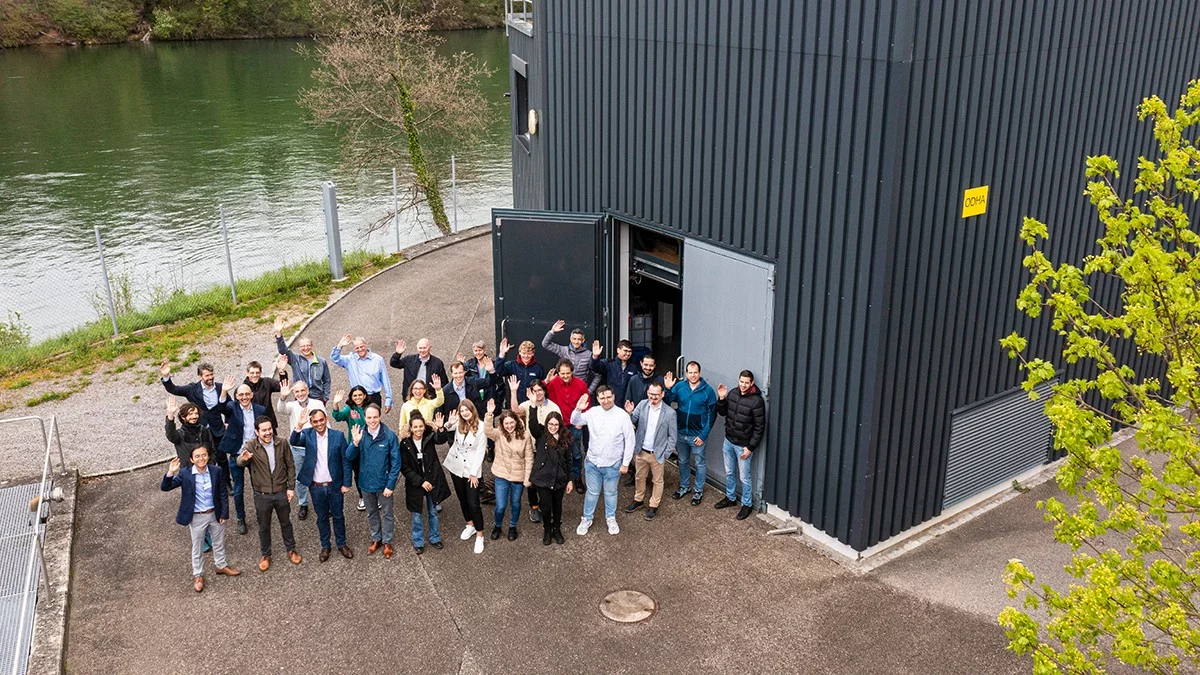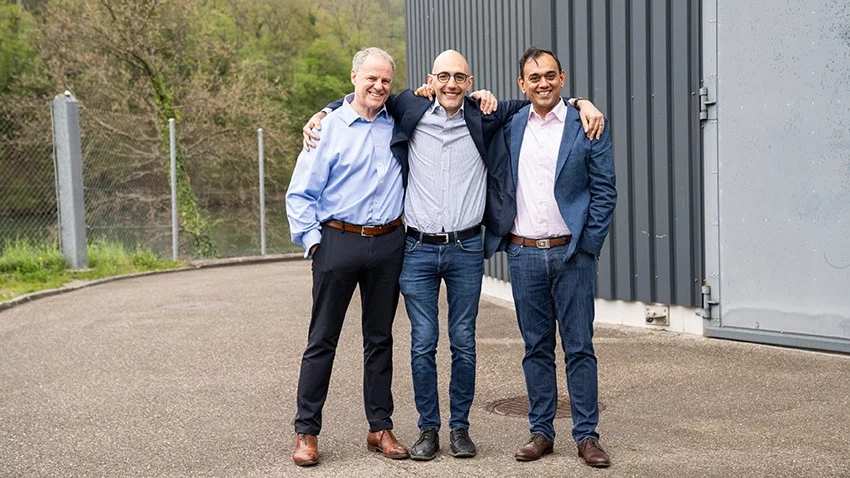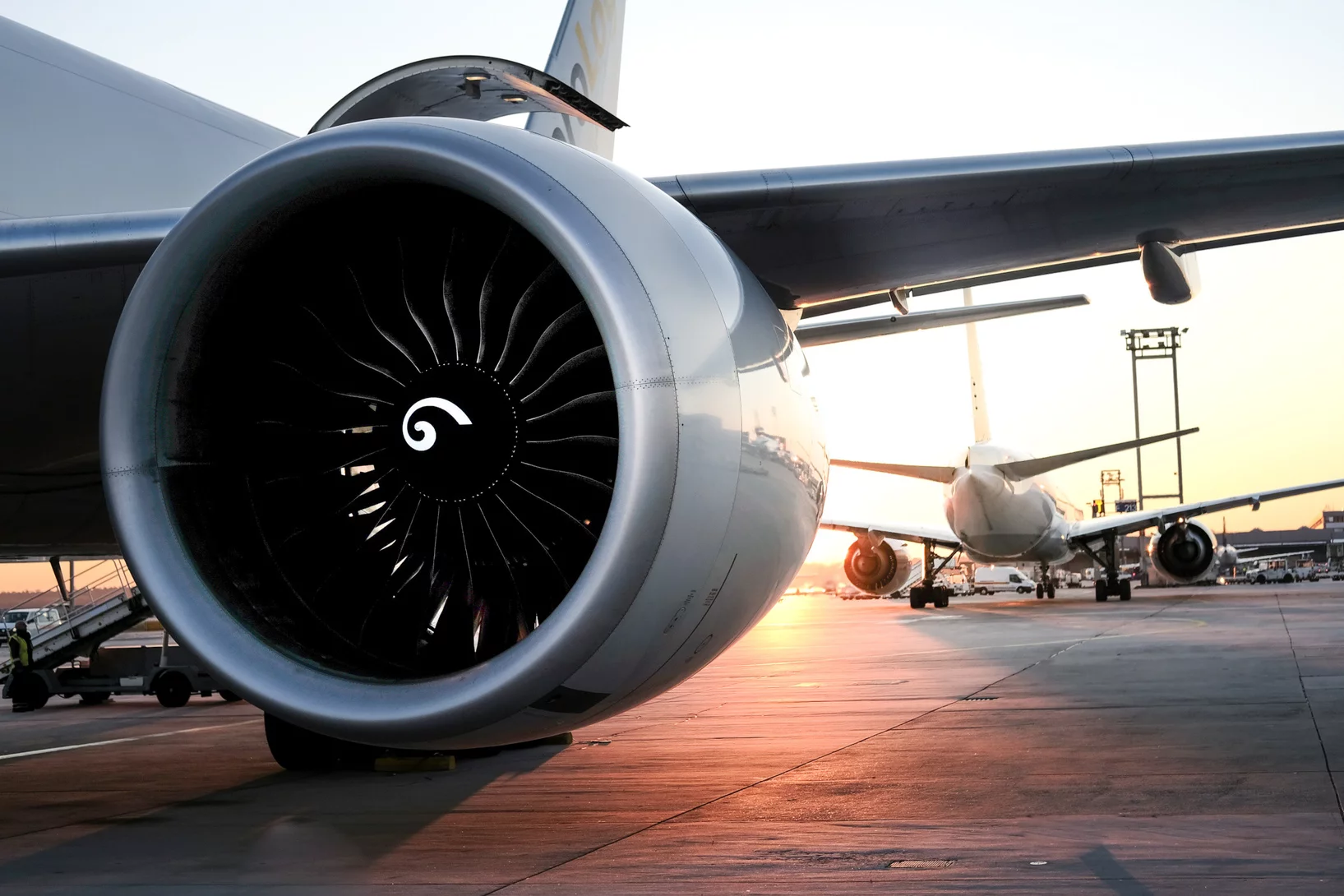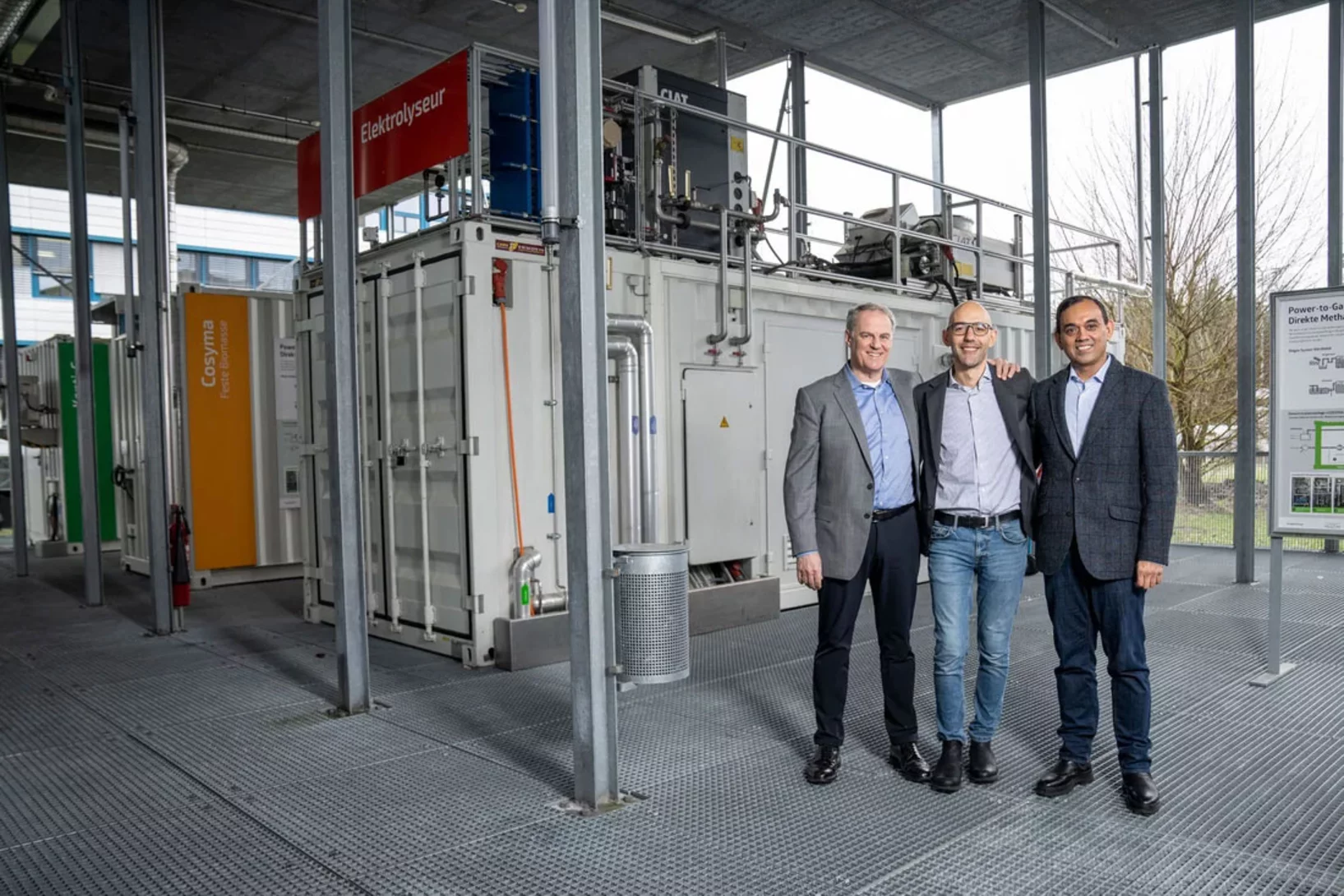A pilot plant for the production of sustainable aviation fuel is being set up on the campus of the Paul Scherrer Institute PSI. The partner in this project is the Zurich-based climate start-up Metafuels. The start of operations is planned for the beginning of 2025. This will be the first plant of its kind in Switzerland.
There’s a strong smell of diesel fuel in the research hall on the PSI East campus in Villigen. Looming above is an enormous ship’s engine spread over three levels of the building. This massive apparatus was originally used for research on catalysts to reduce pollutants in combustion processes. With an eye towards increasing decarbonisation of the mobility sector, this research project is now being shut down to make way for a new challenge: sustainable air travel.
"This is where our pilot plant for the production of sustainable aviation fuel is to be built," explains Marco Ranocchiari, head of the Energy System Integration (ESI) test platform at PSI. With a process called aerobrew developed by PSI and the Zurich-based climate start-up Metafuels, energy from sustainable sources will be used for the highly efficient production of eSAF – electro sustainable aviation fuel.
This industrial collaboration is receiving support within the framework of the Pilot and Demonstration Programme initiated by the Swiss Federal Office of Energy to develop and test new renewable energy technologies. The grant of 4.4 million Swiss francs makes it possible to establish a pilot plant on the PSI campus to demonstrate the aerobrew technology.
"Such a collaboration is enormously fruitful for our institute," Ranocchiari says. "Our strength in constructing and operating large facilities and the well-founded industry knowledge of Metafuels in the energy sector are ideal prerequisites for developing our technology and advancing the decarbonisation of the aviation industry."
A short- and long-term solution for aviation
The use of eSAFs does not require airlines to retrofit aircraft or purchase new ones. Nor does it necessitate a redesign of the basic refueling infrastructure. These fuels can be directly used in conventional engines. Therefore the aircraft fleet currently in service does not need to be replaced, and sustainable fuel can be gradually introduced by increasingly mixing it into kerosene, ultimately replacing that fossil fuel entirely.
The justification for such a technology is obvious: The aviation sector is responsible for more than 2 percent of CO2 emissions worldwide – that corresponds to around 800 million tonnes. Added to this are further greenhouse gas emissions and complex climate factors resulting from the flight altitude and the type of emissions, so that the actual value approaches 3.5 percent.
"International business travel – powered by aviation – as well as the exporting of key Swiss goods account for a significant share of local value creation and thus pose a central challenge for the decarbonisation of industry in Switzerland," explains Saurabh Kapoor, co-founder and CEO of Metafuels. "The decarbonisation of our aviation industry will thus also play a role in the mission to decarbonise the global economy."
Scalability and efficiency
The aerobrew technology can enable a seamless transition from fossil kerosene to sustainable aviation fuel through a patented method for converting green methanol into eSAF. Green methanol is a substance produced from green hydrogen (H₂) and sustainably sourced carbon dioxide (CO₂). Green H₂ can be generated from water electrolysis driven by renewable electricity, while CO₂ can in the short term be captured from biogenic sources such as wood or plant waste, and through direct air capture in the long term.
Such sustainable aviation fuels are not new. What the industry has lacked up to now, however, is an affordable, efficiently produced, and commercially scalable fuel that can significantly reduce the airlines’ net emissions. This is the core problem that the two partners are joining forces to solve.
The pilot plant for conversion of methanol into eSAF on this scale will be the first of its kind in Switzerland. The goal is to demonstrate the aerobrew technology and, in a next step, make it possible to scale it up for industrial-scale commercial use.
Text: Paul Scherrer Institute PSI/Benjamin A. Senn, based on a media release from Metafuels
© PSI provides image and/or video material free of charge for media coverage of the content of the above text. Use of this material for other purposes is not permitted. This also includes the transfer of the image and video material into databases as well as sale by third parties.






